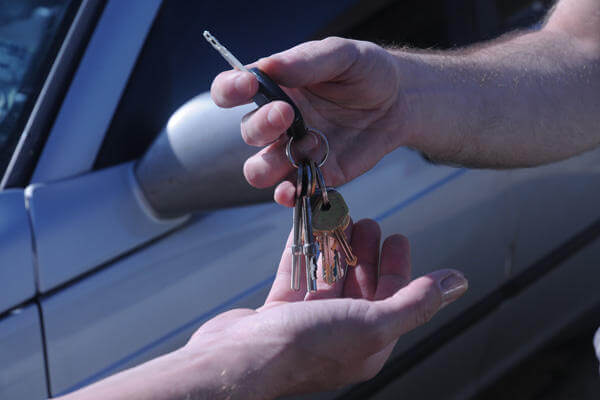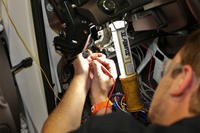This content is provided courtesy of USAA.
An extended vehicle warranty could save you thousands of dollars in repair costs if your car has major problems after the manufacturer's warranty expires. That's the upside, and there are plenty of people who swear by the prolonged protection. But critics argue that extended warranties, which also are called vehicle protection plans or service contracts, don't always pay off.
Who's right? Who's wrong? The truth is, it depends. Not all extended warranties are created equal. Ultimately, the value you get from such a contract will depend on whom you buy it from, when you buy it and how well you understand the terms of coverage. Here are a few tips to guide your decision.
Don't Be Pressured. Some auto dealerships encourage customers to buy extended warranties regardless of whether they need them. But you're under no obligation to buy right there and then. In fact, you're better off shopping around to compare third-party (called "after-market") service contracts with the dealer's offer. Making a separate transaction, when you're not also negotiating the price of the car and financing terms, can help you arrive at a cool-headed decision and better understand the warranty terms.
| What's in a name? |
|---|
|
Extended vehicle warranty contracts go by many names — vehicle protection plans, maintenance agreements or service extensions, to name a few. You pay a price up-front so expensive repairs may be covered by the service contract. |
"Car dealers often sell extended warranties at a 100% markup; in other words, they'll quote you $1,000 for a warranty that only cost them $500," said Gina Jordan, executive director of consumer lending for USAA. "Buyers can likely get a much better price by shopping around for warranties outside of the dealership."
As you're weighing your options, don't fall prey to scare tactics from junk mailers or unsolicited phone calls claiming, "You must act now to extend your coverage!" Take your time, but be aware that prices for service contracts tend to go up sharply when the manufacturer's warranty expires.
Think Ahead. You can't predict the future, but you can make reasonable assumptions about the vehicle you're buying, your financial situation and when you'll trade up to a new car.
First, factor in the reliability of your car — how likely is it to break down? USAA's list of preferred vehicles is one source to help you identify cars with high combined rankings for reliability, safety and costs of ownership.
Second, consider how much a major repair bill would rock your household budget. If that's a scary thought, paying upfront for a service contract could be a wise choice. One important factor to keep in mind: Some repairs may not be covered by the contract.
You also should think about how long you plan to keep the car. Most manufacturer warranties on new vehicles cover at least three years or 60,000 miles, whichever comes first. If you're likely to purchase another new vehicle after a few years, buying an extended warranty probably wouldn't make sense. But if you're the type who prefers a long-term relationship with your car, you might want to be prepared for repairs as your vehicle ages.
Know with Whom You're Dealing. While bargain-shopping is a good idea, take care to weigh the price of the service contract against the quality of the company that backs it.
"If you read and completely understand the coverage a warranty provides, a contract with a major auto manufacturer or respected financial services company is generally a safe bet," Jordan said. "Approach other after-market warranty companies with caution. It's a good idea to check with the Better Business Bureau and online review sites to understand the quality of the product you're purchasing and how customers are treated when a claim arises."
Compare Apples to Apples. Service contracts come in all shapes and sizes. Lower-end warranties might cover only major mechanical breakdowns; midpriced contracts may also cover some normal wear and tear; and the most expensive contracts are "bumper to bumper," usually covering all but a few types of repairs.
Also be sure to compare the deductible and the method of payment on the plans you're considering. Some require you to pay the mechanic out of pocket and file for partial reimbursement. Other plans may pay for repairs directly but require a co-pay from you. And some contracts have no deductible at all.
Make sure you scrutinize the fine print about maintaining your vehicle and who's qualified to perform service. Some service contracts will pay for repairs only if you can prove that you've kept up with routine maintenance, such as oil changes, using a certified auto shop.
However convincing the salesperson's pitch may be, there's no such thing as a one-size-fits-all service contract. As with any financial decision, thinking carefully about your personal needs is the safest route to a sound purchase.











